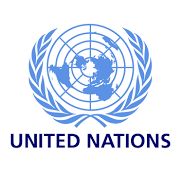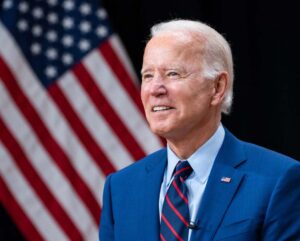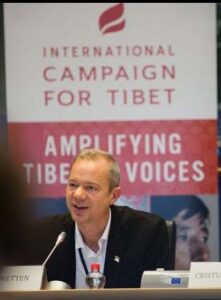The United Nations has released a statement by a group of experts who say they are “extremely alarmed by reports of alleged ‘organ harvesting’ targeting minorities, including Falun Gong practitioners, Uyghurs, Tibetans, Muslims and Christians, in detention in China”. Falun Gong is a Buddhist religion banned in China and Uyghurs are the ethnic minority Muslim people living in East Turkestan [Ch: Xinjiang] in north western China who are subjected to similar oppressive rule as that of the Tibetans living in Tibet.
 The UN statement, released on June 14, continues, “The experts said they have received credible information that detainees from ethnic, linguistic or religious minorities may be forcibly subjected to blood tests and organ examinations such as ultrasound and x-rays, without their informed consent; while other prisoners are not required to undergo such examinations. The results of the examinations are reportedly registered in a database of living organ sources that facilitates organ allocation.
The UN statement, released on June 14, continues, “The experts said they have received credible information that detainees from ethnic, linguistic or religious minorities may be forcibly subjected to blood tests and organ examinations such as ultrasound and x-rays, without their informed consent; while other prisoners are not required to undergo such examinations. The results of the examinations are reportedly registered in a database of living organ sources that facilitates organ allocation.
“Forced organ harvesting in China appears to be targeting specific ethnic, linguistic or religious minorities held in detention, often without being explained the reasons for arrest or given arrest warrants, at different locations,” they said. “We are deeply concerned by reports of discriminatory treatment of the prisoners or detainees based on their ethnicity and religion or belief.
“According to the allegations received, the most common organs removed from the prisoners are reportedly hearts, kidneys, livers, corneas and, less commonly, parts of livers. This form of trafficking with a medical nature allegedly involves health sector professionals, including surgeons, anaesthetists and other medical specialists.”
The report continues, “Another UN Human Rights mechanism has also highlighted concerns about the practice of removing organs from prisoners of a certain religious minority.
“Despite the gradual development of a voluntary organ donation system, information continues to emerge regarding serious human rights violations in the procurement of organs for transplants in China […] Concern remains at the lack of independent oversight as to whether the consent to donation and organ allocation is effectively given by prisoners or detainees. It is also reported that families of deceased detainees and prisoners are prevented from claiming their bodies”.
 The following day, on June 14, the United States and European Union issued a joint declaration following a summit held in Brussels where US President Joe Biden, on his first presidential visit to Europe and the first EU-US summit of his presidency, met EU leaders to underline their shared concerns about China’s human rights violations, with specific mention of Tibet.
The following day, on June 14, the United States and European Union issued a joint declaration following a summit held in Brussels where US President Joe Biden, on his first presidential visit to Europe and the first EU-US summit of his presidency, met EU leaders to underline their shared concerns about China’s human rights violations, with specific mention of Tibet.
Their statement promises that Bussels and Washington will “closely consult and cooperate”, speaks of their “respective similar multi-faceted approaches” to Beijing, which include “elements of cooperation, competition, and systemic rivalry,” and mentions “ongoing human rights violations in Xinjiang and Tibet, the erosion of autonomy and democratic processes in Hong Kong; economic coercion; disinformation campaigns; and regional security issues.”
 President of the European Commission Ursula von der Leyen said of China, “When it comes to human rights and human dignity we are systemic rivals. We have to speak out on that and it is very clear that it is the main issue that clearly divides us.”
President of the European Commission Ursula von der Leyen said of China, “When it comes to human rights and human dignity we are systemic rivals. We have to speak out on that and it is very clear that it is the main issue that clearly divides us.”
In December last year, the “New EU-US agenda for global change” was adopted with the EU stating that the EU and the US agree on the strategic challenge presented by China’s growing international assertiveness, and highlighted the new EU-US Dialogue on China as a key mechanism for advancing their interests and managing their differences on this issue.
 The US-based Tibet advocacy group the International Campaign for Tibet’s EU Policy Director Vincent Metten said, “ICT applauds the mention of the appalling human rights situation Tibet in the joint statement adopted at the EU-US summit. This is a very encouraging and constructive step in the transatlantic cooperation vis-à-vis the PRC. It is crucial that like-minded states continue to coordinate their foreign policies on China and show their determination to react and act together at the multilateral level to condemn the serious abuses on human rights done by Beijing and President Xi Jinping.”
The US-based Tibet advocacy group the International Campaign for Tibet’s EU Policy Director Vincent Metten said, “ICT applauds the mention of the appalling human rights situation Tibet in the joint statement adopted at the EU-US summit. This is a very encouraging and constructive step in the transatlantic cooperation vis-à-vis the PRC. It is crucial that like-minded states continue to coordinate their foreign policies on China and show their determination to react and act together at the multilateral level to condemn the serious abuses on human rights done by Beijing and President Xi Jinping.”




 Print
Print Email
Email